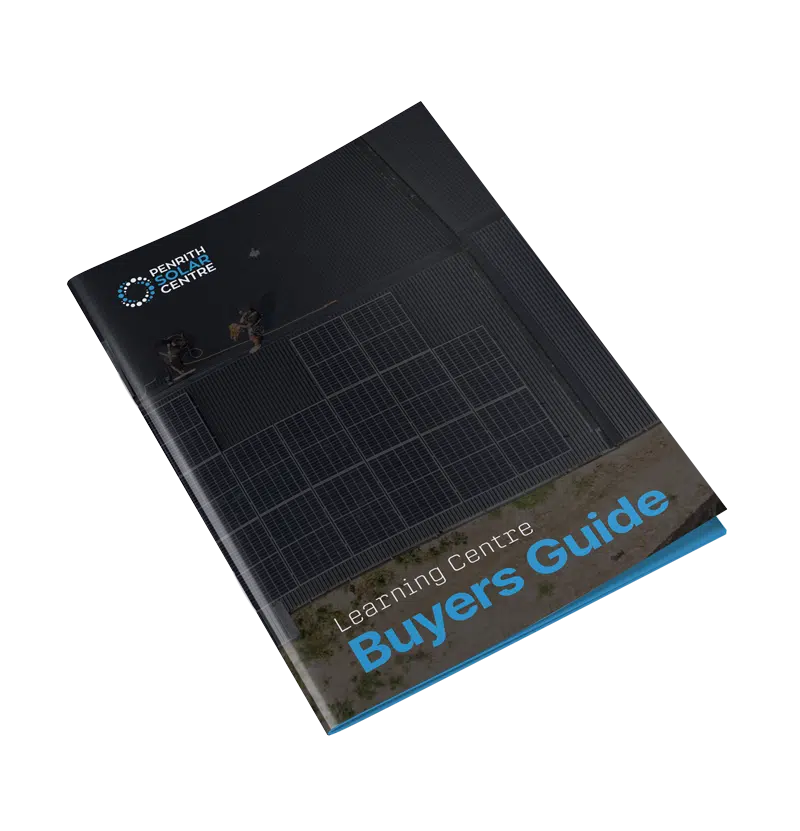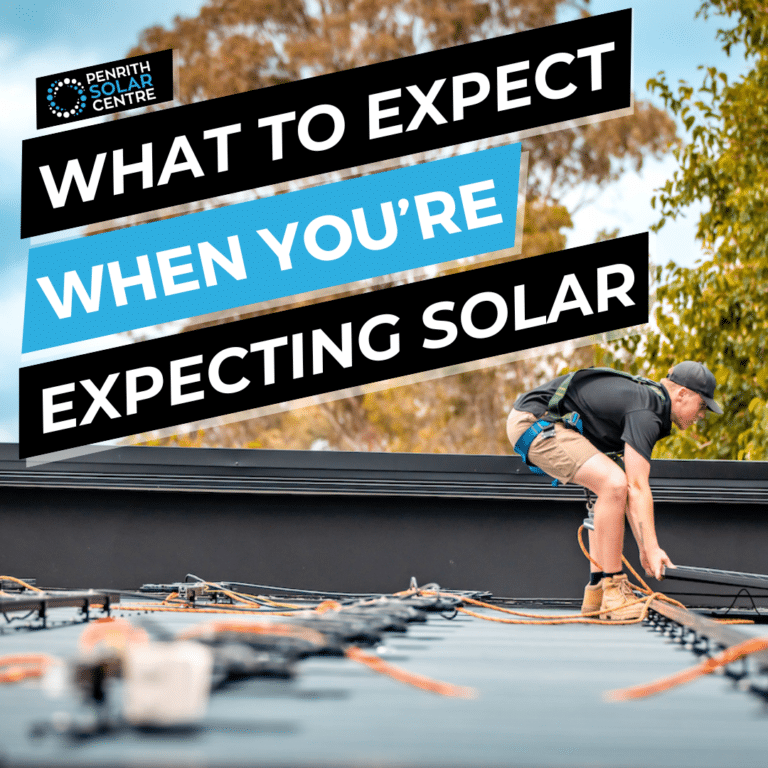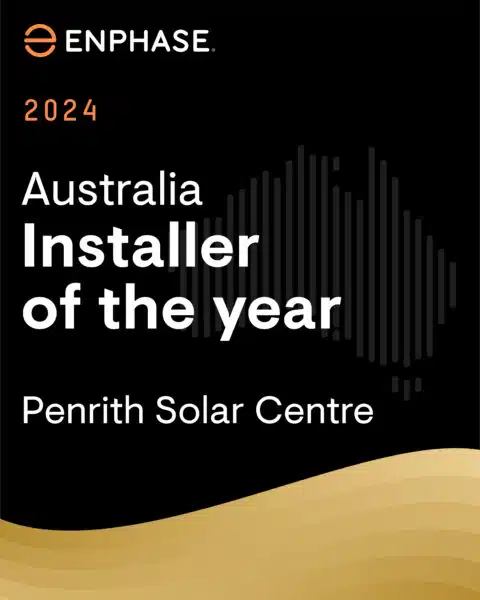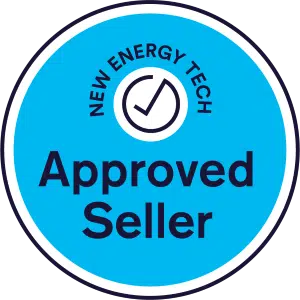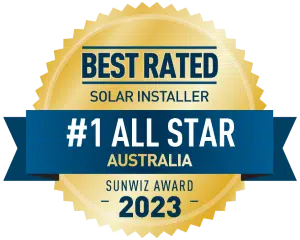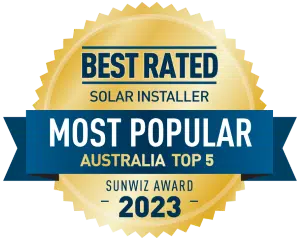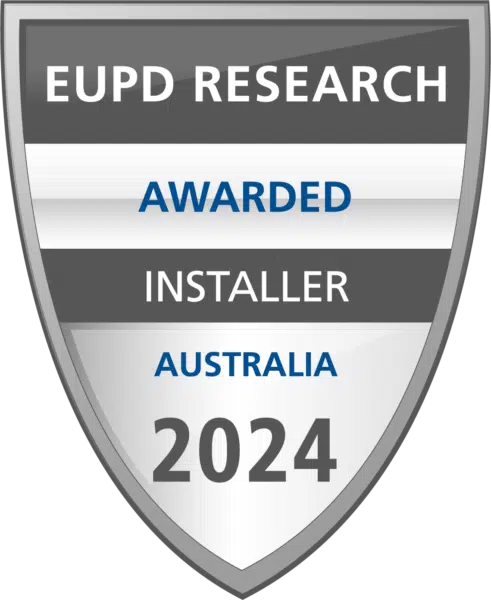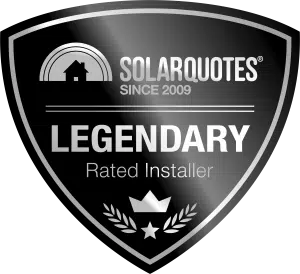
Solar is a wonderful solution to the problems of A.) global warming and B.) high energy bills. You’ve heard wonderful things, especially regarding the warranty period. But within that period, as you’ve learned, solar panels reduce in efficiency over time. Why is that?
It’s called solar panel degradation, and it’s just a fact of the technology. Solar panels have a marginal drop in efficiency over their warranted period of 25 – 30 years.
At Penrith Solar Centre, we understand that you want the very best components harvesting all that sweet sunshine for your home. When you choose us as your installer, you’re entering a partnership that will last years. We’re the ones who fulfil your product warranties. We know a thing or two about solar panel degradation.
In this article, you will learn:
- What is Solar Panel Degradation?
- What is the Rate of Degradation for Solar Panels?
- What Causes Solar Panel Degradation?
- How To Care for Your Solar Panels
By the end of this article, you’ll understand solar panel degradation and how it affects your system’s performance. Let’s dive in.
What is Solar Panel Degradation?
Degradation is the slow process where solar panels lose efficiency over time. It takes decades to become noticeable, but there are things that could accelerate degradation.
As panels degrade, they generate less electricity from the same amount of sunlight.
If you’re interested in learning a bit more about the warranties for the products we install, you might want to check out the following article titled, A Complete Guide to Solar Warranties.
What is the Rate of Degradation for Solar Panels?
On average, solar panels degrade at a rate of 1% during the first year and between 0.35% to 0.5% per year.
This means that each year, your solar panels will produce slightly less energy than the year before.
When you’re shopping for quotes, it’s important to understand that this rate will impact your solar production 25 – 30 years from now.
The solar panels that we install both have a slow rate of degradation.
- Trina Vertex S+ Solar Panels have a degradation rate of up to 1% in the first year, and around 0.4% per year for the rest of the panel’s lifespan.
- Aiko Neostar N-type (455W) Solar Panels have a degradation rate of up to 1% in the first year, and around 0.35% per year for the rest of the panel’s lifespan.
So the average degradation after 25 years for each brand of solar panel we carry is about:
- Trina Vertex S+ is 87.4% efficient after 30 years.
- Aiko Neostar 2N is 88.85% efficient after 30 years.
That’s great in terms of efficiencies.
If you’re interested in learning a bit more about the Trina Vertex S+ solar panels, you might want to check out the following article titled, Why We Install Trina Vertex S+ Solar Panels.
What Causes Solar Panel Degradation?
Understanding degradation and its effects on solar panels helps in planning a new system with a solar consultant. You want those panels to remain as efficient as possible for as long as possible.
Temperature Coefficient: Solar panels perform at their best when it isn’t too hot or too cold. Extreme temperatures reduce the performance of the panels. The temperature coefficient is how much the panel outputs when the temperature is above or below the standard testing conditions which is 25°C. Every degree over the standard testing conditions range drops the efficiency by a fraction of a percent.
Temperature Extremes: Dramatic temperature changes between hot and cold extremes aren’t great for your panels. These changes impact the soldered connections within the panel (like the busbars), causing them to wear out over time as they expand and contract.
Water Ingress: This one is caused by degradation. Water ingress will cause a catastrophic failure in your solar panels. Usually, it’s the laminate around the solar cells that would fail over time, allowing moisture ingress. Long-term exposure to high humidity and high temperatures can cause this. This type of behaviour will cause the panel to short out. This affects the panel’s efficiency and longevity. This is possible further north of Sydney, in more tropical climates.
It’s important to mention that while solar panel degradation is inevitable, its impact can be lessened through:
- Proper Installation: Ensuring that panels are installed correctly by a quality solar installer will minimise degradation.
- Quality Materials: Using high-quality materials that can withstand the elements will reduce the rate of degradation.
- Regular Maintenance: Periodic inspections can catch early signs of damage, allowing for timely repairs.
Panel-level Monitoring: The best way to keep an eye on your solar panels is by using the Enphase Enlighten App (or any other consumption monitoring app, like Solar Analytics).
If you have Enphase microinverters, software like this tells you how individual panels are performing, so you’ll get alerts that pinpoint what panels might need maintenance. The sooner issues are addressed, the better and longer your panels will maintain their efficiency.
If you’re interested in learning a bit more about the importance of monitoring and programming your energy, you might want to check out the following article titled, What is Consumption Monitoring?
How to Care for Your Solar Panels
We’d like to have a direct but polite conversation about how clean your solar panels are.
Are they clean?
Keeping your solar panels clean and free from debris is a great way to combat drops in efficiency. Anything that blocks sunlight needs removal to maintain performance.
If you live near Parramatta Park, are your panels free of bat faeces? If you live near the mighty Pacific Ocean, are they free of salt buildup? What about dirt, dust, and other debris like leaves or the occasional stray piece of paper or plastic that blows across it?
A lot of what folks think about solar panel degradation is just stuff like shading affecting the efficiency of the panels. It’s one of the reasons why we exclusively install Enphase microinverters: they work with the solar panels to bypass obstructions (and shade).
This keeps your solar panels operating efficiently until you reach out to your certified solar installer (like Penrith Solar Centre) to periodically clean your panels.
Please remember this about solar panel maintenance: proper installation is essential to reduce degradation.
A good solar panel installer will make sure that the panel is at enough of an angle to make sure it will self-clean every time it rains.
If you’re interested in learning a bit more about the importance of a good installer for your solar (the most important component of any system, seriously), you might want to check out the following article titled, In-house Installers vs. Subcontractors: Which is Better?
Click here for sunshine and savings
Final Thoughts from Jake Warner, Managing Director of Penrith Solar Centre

Pro tip: Without panel-level monitoring like Enphase, it’s nearly impossible to truly pinpoint panel degradation over 30 years.
When panels are mounted to a string inverter, and one degrades faster than the others, I’ll bet your bottom dollar you will never be able to pick which one it is or if you even have that problem at all.
It’s another tick in the box for microinverters.
Good News, Everyone! Solar Panel Degradation Is Normal
Now you know a few things about what causes solar panels to degrade. To reduce the amount of efficiency you’ll lose over 25 years, you’ll want to keep an eye on your consumption monitoring app, periodically look at the hardware up on the roof and reach out to your solar installer when they need a cleaning.
At Penrith Solar Centre, we help customers keep their systems running as efficiently as possible. We stand behind our work and our products and love guiding folks like you through the ins and outs of maintenance. We’re here to help.
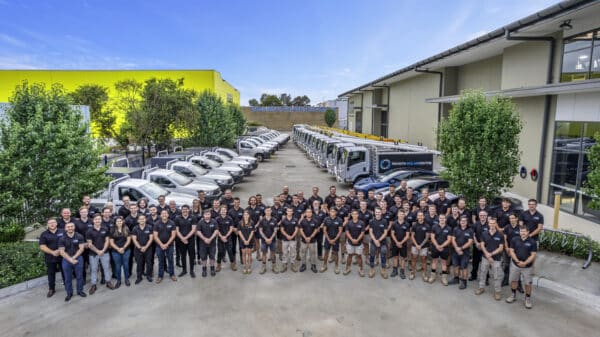
If you’re interested in learning a bit more about how important each component of your solar system is, you might want to check out the following article titled, How to Shop for Your Solar System.
